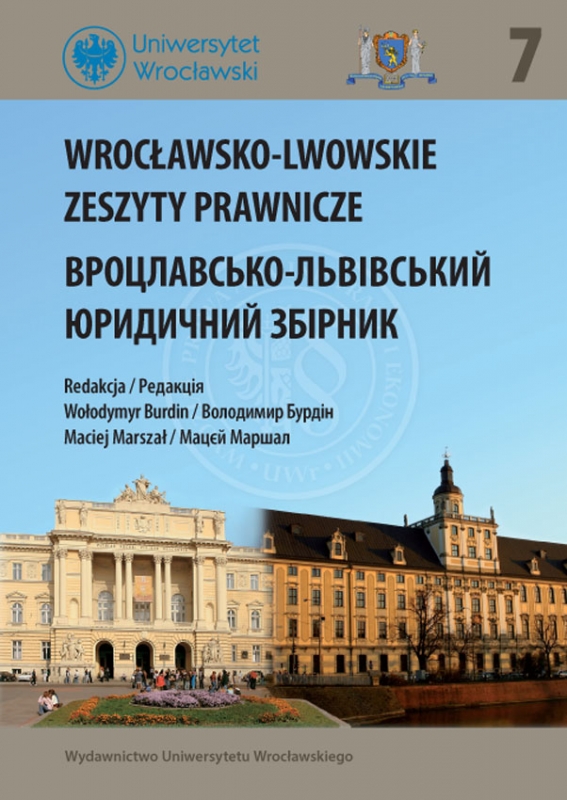

Articles

Historical preconditions of appearance and development of the corruption as an antisocial phenomenon
The article investigates the origins of corrupt relationships whose foundation can be found even at the biological stage of the development of nature and human. Corruption existed in every society in all periods of human history. Complaints that the world will be destroyed because of bribery and corruption were commonplace, e.g. on a Assyrian clay tablet in 2800 BC. People, who were dependent on the forces of nature, and grace of their leaders, have always tried to appease them and brought gifts bribery, in other words — committed active corruption. An expensive gift was profitable and identified a person among the applicants which was a guarantee that his request will be fulfilled.
It should be noted that at this stage a gift bribe cannot be considered as a harmful phenomenon, it plays a positive role as exempting people who manage a separately formed society from everyday domestic concerns. The person who brings the gift cannot expect a favorable response, they can only hope for it.
This allows us to draw some conclusions: corruption is a prerequisite for the possibility of obtaining benefits depending on the social status; relations in the form of a gift bribe did not constitute socially harmful acts, but rather were permitted and encouraged by the rules of morality.
Details of corruption contained in historical sources from ancient eastern civilizations — ancient Egypt, China, India and the antique civilizations of Ancient Greece and Rome. Corruption as a negative phenomenon can be found in the Old Testament: “For I know your crimes are many and your sins innumerable. They oppress the righteous, take a bribe, and deprive the poor of justice at the gates.
Attainment of benefits requires certain resources costs, compensated by funds received from consumers of those goods. Salaries of employees belong to the costs borne by the consumer through payment of required fees, but their activity is determined by the will of the authorities and employers. This leads to a situation where the consumer receives the required service or product from the employee, but cannot directly influence their activities.
With the appearance of the state and the emergence of professional bureaucrats, tradition to endow those on whom one’s fate dependent has spread.
At present, the cause of this antisocial phenomenon depends on the status of property rights: the poorer and socially protected the population, the higher the level of corruption. Therefore, the best and safest way to fight corruption is to increase the level of social wealth.
Acts of corruption in the public sector are one of the major problems of our time, the successful solution to which, based on the analysis of historical experience, will make it easier to facilitate the successful development of the state and society as a whole.
Rys historyczny rozwoju korupcji jako zjawisko antyspołeczne
Zjawisko korupcji ma swoją długa tradycję w historii rozwoju ludzkości i, co ciekawe, na przestrzeni wieków nie zawsze było oceniane jednoznacznie negatywnie. Dotyczy to przede wszystkim epoki cywilizacji plemiennej, kiedy zgodnie z wierzeniami pierwotnymi człowiek przy pomocy daru składanego za pośrednictwem szamana mógł wkupić się w łaski bogów. Informacja o korupcji jako zjawisku negatywnym odnotowana jest w starożytnych źródłach dotyczących cywilizacji wschodnich: starożytnego Egiptu, Chin, Indii. Podobny odbiór tego zjawiska zaobserwujemy w pamiątkach piśmienniczych związanych ze starożytną cywilizacją Grecji i Rzymu. Świat chrześcijański również odnosił się negatywnie do korupcji. Proceder ten znajduje słowa potępienia już w Księdze Starego Testamentu. Na kolejnych etapach historii, mimo dużej „żywotności” korupcji, wszystkie teorie dotyczące podwalin prawnych życia społecznego zawsze oceniały to zjawisko negatywnie. Autor niniejszego artykułu podkreśla, że dziś korupcja jest problemem o zasięgu globalnym i generuje wiele negatywnych zjawisk. Jednym z nich jest brak zaufania społeczeństwa do administracji państwowej, łamanie zasady nadrzędności prawa, co w konsekwencji prowadzi do konfliktów politycznych i ekonomicznych. Walka z korupcją jest niezwykle istotna ze względu na stabilizację ekonomiczną i rozwój, gwarancję bezpieczeństwa, ochronę praw człowieka, zmniejszenie poziomu biedy, przeciwdziałanie przestępczości zorganizowanej, która nie ma granic. Definiując korupcję jako działania bezprawne polegające na nadużywaniu stanowiska publicznego w celu osiągnięcia korzyści prywatnych, autor zauważa, że termin ten donosi się zarówno do przedstawicieli aparatu administracyjnego, jak i elit politycznych.
Cechą charakterystyczną korupcji jest konflikt między działaniem osoby zajmującej daną posadę a interesem jej pracodawcy lub konflikt między działaniem obejmującym daną funkcję z wyboru społecznego a interesem społeczeństwa. Do działań korupcyjnych może być skłonny człowiek, który sprawuje tzw. władzę dyskrecjonalną. Zawodami najczęściej wymienianymi w kontekście zjawiska korupcji są: urzędnicy, posłowie, sędziowie, pracownicy organów ochrony prawnej, administratorzy, egzaminatorzy, lekarze itd.